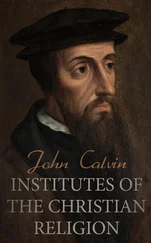Jean Calvin - Letters of John Calvin, Volume II
Здесь есть возможность читать онлайн «Jean Calvin - Letters of John Calvin, Volume II» — ознакомительный отрывок электронной книги совершенно бесплатно, а после прочтения отрывка купить полную версию. В некоторых случаях можно слушать аудио, скачать через торрент в формате fb2 и присутствует краткое содержание. Жанр: foreign_antique, foreign_prose, на английском языке. Описание произведения, (предисловие) а так же отзывы посетителей доступны на портале библиотеки ЛибКат.
- Название:Letters of John Calvin, Volume II
- Автор:
- Жанр:
- Год:неизвестен
- ISBN:нет данных
- Рейтинг книги:3 / 5. Голосов: 1
-
Избранное:Добавить в избранное
- Отзывы:
-
Ваша оценка:
- 60
- 1
- 2
- 3
- 4
- 5
Letters of John Calvin, Volume II: краткое содержание, описание и аннотация
Предлагаем к чтению аннотацию, описание, краткое содержание или предисловие (зависит от того, что написал сам автор книги «Letters of John Calvin, Volume II»). Если вы не нашли необходимую информацию о книге — напишите в комментариях, мы постараемся отыскать её.
Letters of John Calvin, Volume II — читать онлайн ознакомительный отрывок
Ниже представлен текст книги, разбитый по страницам. Система сохранения места последней прочитанной страницы, позволяет с удобством читать онлайн бесплатно книгу «Letters of John Calvin, Volume II», без необходимости каждый раз заново искать на чём Вы остановились. Поставьте закладку, и сможете в любой момент перейти на страницу, на которой закончили чтение.
Интервал:
Закладка:
73
At the request of Calvin, Farel had written a letter to Amy Perrin, in order to calm his resentment, and lead him back to the good path. The message of Farel, like that of Calvin himself, was without effect, and the quarrel between the Reformer and his old friend, now his adversary, became daily more confirmed and violent.
74
A term frequently employed by Calvin to designate Perrin, with the adjunct of a derisive epithet, – Cæsar our comedian .
75
See note 1, vol. i. p. 343. It appears, from this passage, that Froment was not at that time settled in Geneva. He was called thither a short time afterwards to assist Francis Bonivard in digesting the Chronicles of the city.
76
The Commentaries on the four Epistles of St. Paul to the Galatians, the Ephesians, the Philippians, and the Colossians, were not published until 1548, by the bookseller Girard, of Geneva. Is there a previous edition of the Commentary on the Galatians? We are not aware of any.
77
This, one of the most remarkable of the works of Calvin, appeared only in 1550.
78
This apparent reconciliation was without satisfactory result. Perrin could not tolerate, nor Calvin sacrifice, the right of censure vested in the Consistory, and which the excesses of the Libertins daily rendered more necessary. "Complaints to the Council by M. Calvin regarding the dissoluteness of the youth, there being nothing more common in the city than acts of debauchery and licentiousness." – Registers of Council , 11th October 1546.
79
M. de Falais had sent Calvin a theological work by a certain Denis de la Roche, requesting his opinion of it.
80
Allusion to the death of one of the sisters of M. de Falais, which they had not ventured to communicate to him.
81
The Commentary on the First Epistle of Saint Paul to the Corinthians, dedicated to M. de Falais.
82
The confiscation of the property of M. de Falais had been pronounced by the Court of Malines. That decree had been submitted to the confirmation of the Emperor.
83
The sentence which put the Elector of Saxony and the Landgrave of Hesse to the ban of the Empire, 20th July 1546, was the signal for war in Germany. The Imperial army, and that of the Protestant Princes, observed one another for several months, on the banks of the Danube, without the one being able to obtain any decisive advantage over the other. But the troops of Charles the Fifth were decimated by want and sickness while there was an overabundance in the camp of the confederates.
84
Maximilian d'Egmont, Count de Buren, a valiant and adventurous captain. He brought a powerful reinforcement to Charles the Fifth from the Netherlands, and he executed that difficult operation with the most happy success.
85
For Peter Viret. See preceding letters to M. de Falais, pp. 63 and 74.
86
Calvin lost his wife, Idelette de Bure, in the beginning of April 1549, and never married again. His Latin correspondence contains two beautiful and touching letters to Viret and to Farel (7th and 11th April) on that sad event. They will be found reprinted in this collection.
87
Valeran Poulain, of Lille, who was at a later period minister of the French Church at Frankfort.
88
The Emperor Charles V. See note 2, p. 78.
89
Maurice of Saxony, cousin of the Elector John Frederic, and son-in-law of the Landgrave of Hesse, unworthily betraying the cause of the Confederates, concluded a secret treaty with the emperor, to whom he took the oath of fidelity, and who guarantied to him in return the spoils of his father-in-law.
90
Nicolas des Gallars, of Paris, (M. de Saules,) the friend and secretary of Calvin, and one of the most distinguished ministers of Geneva. He was sent as pastor to the Church at Paris in 1557, reappointed in 1560 to the French Church of London, assisted the following year at the conference at Poissy, was named minister of the Church of Orleans, and became, in 1571, preacher to the Queen of Navarre. We have several of his works mentioned by Senebier, Hist. Litt. , tom. i. p. 341.
91
Helène de Falais. She had married Adrien de L'Isle, Seigneur de Trénoy.
92
This diversion, dictated to the King of France by sound politics, was not effected, and Francis I. remained a peaceable spectator of events, whose necessary tendency was to secure, by the defeat of the Protestant party in Germany, the ascendency of Charles V. in Europe.
93
The ministers of Berne were divided by incessant disputes on the subject of the Supper. Sulzer and certain of his colleagues inclined to the Lutheran view, which Erasme Ritter combated; and by an abuse of power, that was not uncommon at that period, the Seigneury of Berne claimed to determine by itself the sense of the controverted dogma, the settlement of which ought to have been remitted to a Synod. – Ruchat, tom. v. pp. 225, 226.
94
The senator, Nicolas de Zerkinden, friend of Calvin and prefect of Nyon.
95
The Roman Catholic and Reformed Cantons, solicited, the former by the emperor, the latter by the Protestant princes, to take part in the struggles of which Germany was the theatre, had both observed a strict neutrality. But the Seigneury of Berne having received information that military movements were taking place in Franche-Comté, then under the rule of the Spaniards, summoned ten thousand men to arms, and occupied the passes of the Jura. That measure, which arose out of the pressure of circumstances, would perhaps have brought about a division among the confederates, and serious complications from without, if the treachery of the Elector Maurice had not hastened on the course of events in Germany. – John de Müller, Hist. de la Confédération Suisse , continuation of M. Vulliemin, tom. xi. p. 292.
96
A word effaced in the original.
97
The original letter is without address. But it is generally believed that it was addressed by Calvin to the widow of the celebrated William Budé, great-grandson of the secretary to King Charles V., and one of the most learned personages of the period of the revival of letters. William Budé having declared in his will that he wished to be buried without ceremony, this circumstance led to the supposition that he had died in the faith of the Reformed. His widow not being able to make free profession of her faith at Paris, was about to settle at Geneva, on the solicitation of Calvin, (June 1549.) She was accompanied by her daughter and three of her sons, Louis, Francis, and John de Budé, who held a distinguished rank in the republic. The best known of the three brothers is John de Budé, Sieur de Vérace, the particular friend of Calvin and of Théodore de Bèze. He was received an inhabitant of Geneva the 27th June 1549, burgess the 2d May 1555, member of both Councils in 1559, fulfilled several important missions to the Protestant princes of Germany, and died in 1589, after having rendered distinguished services to his new country, and thereby added fresh lustre to his family, whose descendants still live at Geneva. – Galiffe, Notices Généalogiques des Familles Genèvoises , tom. iii. p. 83, et seq.
Читать дальшеИнтервал:
Закладка:
Похожие книги на «Letters of John Calvin, Volume II»
Представляем Вашему вниманию похожие книги на «Letters of John Calvin, Volume II» списком для выбора. Мы отобрали схожую по названию и смыслу литературу в надежде предоставить читателям больше вариантов отыскать новые, интересные, ещё непрочитанные произведения.
Обсуждение, отзывы о книге «Letters of John Calvin, Volume II» и просто собственные мнения читателей. Оставьте ваши комментарии, напишите, что Вы думаете о произведении, его смысле или главных героях. Укажите что конкретно понравилось, а что нет, и почему Вы так считаете.












